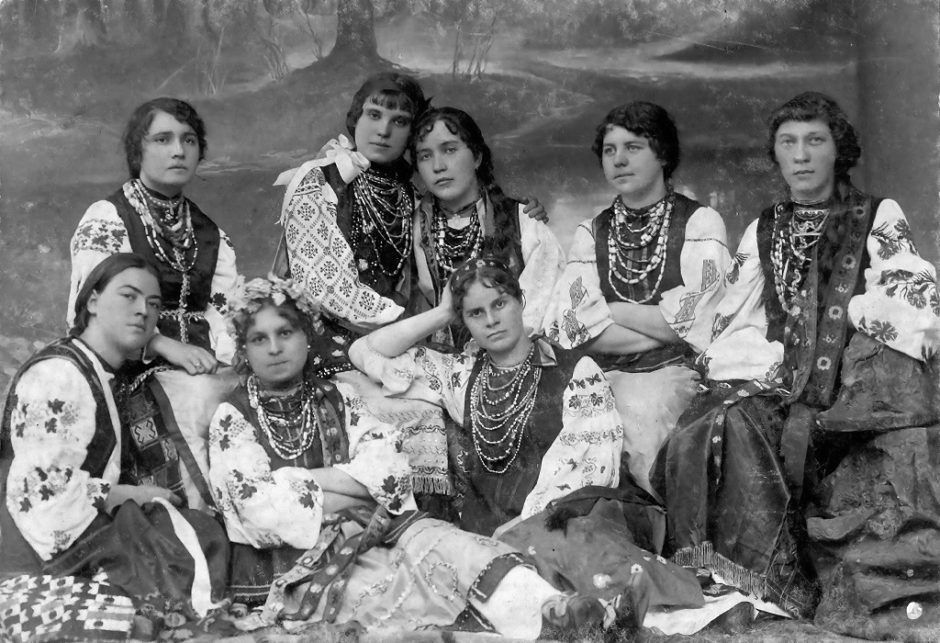The launch of a glossy coffee table book on Jewish-Ukrainian relations provided its co-authors with an opportunity to discuss their complicated topic.
At a symposium earlier this month at the University of Toronto’s Munk School of Global Affairs, Yohanan Petrovsky-Shtern — a professor of Jewish Studies at Northwestern University — and Paul Robert Magocsi — the chair of Ukrainian Studies at the University of Toronto — talked about the issues raised by Jews and Ukrainians: A Millennium of Co-Existence.
They were joined by three other panelists — Ori Yehudai, a professor of history at the University of Toronto, Anna Shternshis, the director of the University of Toronto’s Anne Tanenbaum Centre for Jewish Studies, and Frank Sysyn, a member of the Canadian Institute of Ukrainian Studies at the University of Alberta.
The lavishly-illustrated 320-page volume, distributed by the University of Toronto Press, was jointly funded by the Ukrainian-Jewish Encounter — which tries to deepen understanding of the breadth, complexity and diversity of Ukrainian-Jewish relations over the centuries, while addressing embedded stereotypes — and the Canadian government’s Department of Citizenship and Immigration.
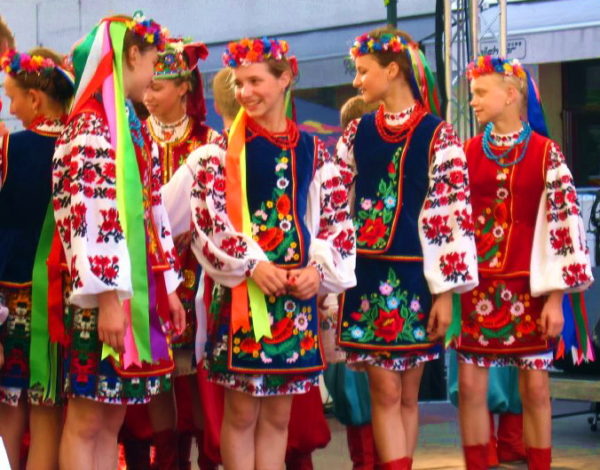
Divided into 12 chapters, the book deals with subjects ranging from traditional Ukrainian culture and antisemitism to architecture and the Jewish and Ukrainian communities outside the borders of Ukraine.
Prior to World War II, 15 percent of the population in Ukrainian lands was Jewish. Today, under the impact of the Holocaust and the emigration of Jews from Ukraine, they represent only 0.2 percent of its population.
Jews and Ukrainians hold stereotypes about each other. As Petrovsky-Shtern and Magocsi write, “For Jews, Ukrainians are fundamentally antisemites ready to attack Jews at a moment’s notice. For Ukrainians, Jews are economic exploiters …”
Petrovsky-Shtern, a former resident of Kiev, explained that the book is “an attempt to overcome mutual ignorance, provide some basic knowledge, and bring Jews and Ukrainians together for a conversation.”
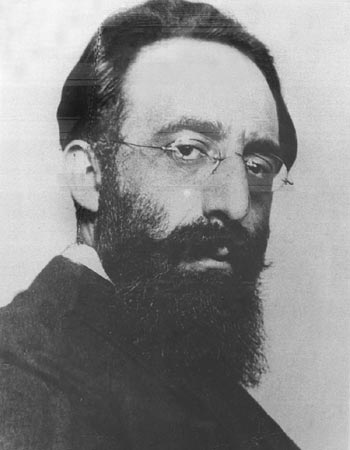
Claiming that Jews and Ukrainians know astoundingly little about each other, he observed, “Jews do not know that Ukraine was home to great rabbinic scholars, Hebrew and Yiddish writers, and major Jewish thinkers and politicians … ” In addition, he added, Jews are unaware that Nathan Birnbaum, who coined the word Zionism, was inspired by the Ruthenian revival movement.
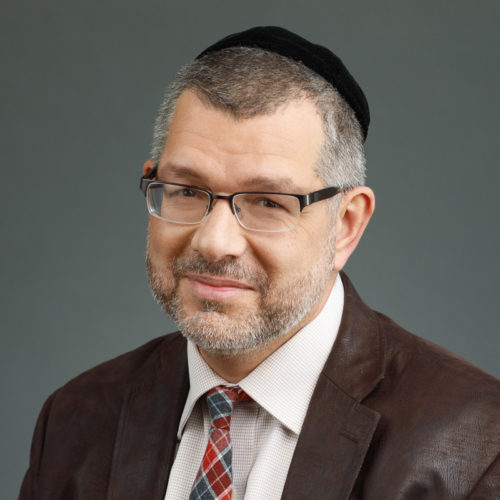
“Ukrainians do not know that Jews made Ukrainian villages into towns and towns into cities and developed the Ukrainian market economy,” said Petrovsky-Shtern, the author of The Golden Age Shtetl: A New History of Jewish Life in East Europe, the winner of a National Jewish Book Award.
Turning to the Nazi occupation of Ukraine, during which time Ukrainian collaborators attacked Jews, he said, “The person who says that Ukrainians were killing Jews during World War II is as ignorant as the person who says that Jews brought Communism to Ukraine. Both statements prey on reductionism and generalization.”
He said that Jews and Ukrainians seeks “to bring the two people together by creating a realm of knowledge between them, a bridge over a dangerous abyss of ignorance.”
Magocsi said his objective in writing the book was “to wean away people from a stereotypical image of the past.” Calling it a “popular book by scholars” rather than a typical academic work of scholarship, he described it as a “starting point” for readers to enhance their knowledge of Ukraine.
Magocsi claimed that “strained relations” between Jews and Ukrainians is a phenomenon found only in the diaspora. As he put it, “There is actually no problem today in Ukraine between Jews and Ukrainians.”
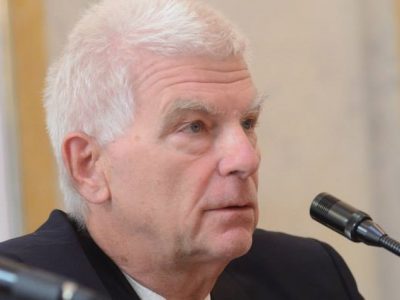
In his judgment, Ukrainians and Jews are trying to build a civic society in Ukraine while paying due respect to people who suffered on Ukrainian soil. “We’re concerned with building a country, regardless of ethnic distinction,” he went on to say.
Yehudai said that Jews and Ukrainians both consider themselves victims. The Holocaust consumed six million Jews, while the great famine in Ukraine during the 1930s killed as many as 10 million Ukrainians. “The theme of victimization plays a role in Jewish-Ukrainian relations,” he said.
Jews were subjected to violence by roving Ukrainian bands during World War I, he said. About 1,000 pogroms broke out during this period, when a short-lived independent Ukrainian government granted Jews civil rights.
According to Yehudai, the cordial relationship that Israel has forged with Ukraine since its independence in 1991 has promoted reconciliation efforts by Jews and Ukrainians.
Yad Vashem, the Holocaust memorial, museum and education center in Jerusalem, has recognized thousands of Ukrainians who helped Jews during the Nazi occupation, he pointed out.
Shternshis, a former citizen of the old Soviet Union, said the Chassidic movement was born in Ukraine. She also said that 50,000 to 60,000 Jews were murdered in pogroms in Ukraine in the early 20th century, leaving some 100,000 Jewish orphans.
Sysyn noted that generalizations are the bane of the discourse between Jews and Ukrainians. Ukrainians frequently regard Jews as opponents, while Jews often see Ukrainians as a “backward element.”
